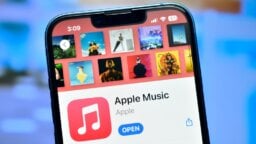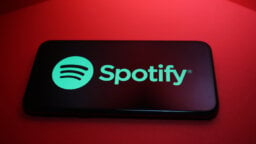Apple approved Spotify’s app update in the US on Friday (May 2), a move that was prompted by a federal court ruling that found Apple in “willful violation” of a previous injunction against its App Store practices.
Spotify can now display subscription pricing within its iOS app and direct American users to external payment options, the streaming giant said in a blog post.
The development follows the culmination of a legal battle that began with Epic Games’ 2020 lawsuit challenging Apple‘s app distribution policies.
US District Judge Yvonne Gonzalez Rogers on April 30 ruled that Apple violated a 2021 injunction that prohibited it from imposing anticompetitive pricing. The judge ordered Apple to stop its illegal behavior after ruling that the tech giant forced apps using external sales to pay a 27% commission to the company.
Following the court decision, Epic Games CEO Tim Sweeney announced on X that Epic Games will bring Fortnite back to the US App Store.
Spotify is among the tech companies that welcomed the court’s ruling. Shortly after it was handed down, Spotify spokesperson Jeanne Moran told TechCrunch: “This landmark court ruling is a victory for developers everywhere. Spotify will move quickly to submit an app update to Apple, enhancing the experience for our consumers across the United States.”
True enough, Spotify submitted an app update to Apple, which Apple subsequently approved.
US consumers “can finally see how much something costs in our app, including pricing details on subscriptions and information about promotions that will save money,” Spotify said.
Through the update, users will also be able to purchase subscriptions, upgrade from a Free account to a Premium plan, or change Premium subscriptions from Individual to a Student, Duo, or Family plan.
They can also use other payment options beyond Apple Pay. Previously, apps were barred from mentioning alternative payment options or indicating that external payments might be less secure.
“Going forward, this opens the door to other seamless buying opportunities that will directly benefit creators (think easy-to-purchase audiobooks),” said Spotify.
“These changes should soon allow publishers to sell their audiobooks through Spotify’s platform seamlessly.”
Spotify
The streaming giant added: “Spotify has always believed that the internet should be a fair and open ecosystem. It’s absolutely necessary to fuel growth, innovation, and creator discovery.
“This groundbreaking decision could unlock real opportunities for creators building their businesses and sharing their art with fans through Spotify. For example, these changes should soon allow publishers to sell their audiobooks through Spotify’s platform seamlessly.”
In response to the decision, Apple told several news outlets: “We strongly disagree with the decision. We will comply with the court’s order and we will appeal.”
The US development follows another regulatory action in Europe, where the European Commission ruled that Apple “breached its anti-steering obligation under the Digital Markets Act.”
Under the DMA, app developers who distribute through Apple’s App Store should be able to freely inform customers about alternative offers available outside the App Store, direct them to these options, and facilitate their purchases.
However, the EU said Apple fails to comply with this obligation. “Due to a number of restrictions imposed by Apple, app developers cannot fully benefit from the advantages of alternative distribution channels outside the App Store,” the EU said on April 23.
The EU has fined Apple EUR €500 million ($567 million) as a result. Apple also criticized the EU’s decision, telling Reuters that it’s “yet another example of the European Commission unfairly targeting Apple in a series of decisions that are bad for the privacy and security of our users, bad for products, and force us to give away our technology for free.”
Last year, Apple was hit with a €1.84 billion ($2 billion) fine for anti-competitive practices on its App Store related to music streaming services.
Music Business Worldwide




